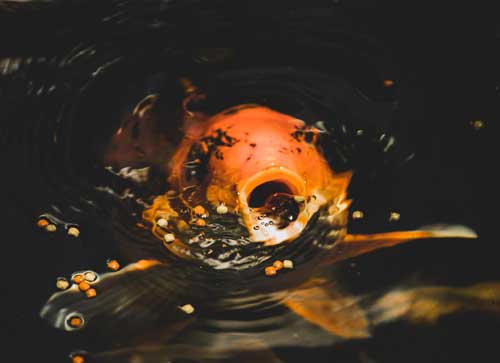The unprecedented events of 2020 has been very challenging for many of us in various ways. However, negative situations often force us to find new ways of dealing with what we cannot control. This certainly has been evident by the massive increase in pond liner sales during the lockdown over the summer. Garden revamps with the addition of a wildlife or fish pond is an encouraging outcome for local wildlife. They depend on water sources for breeding, for drinking water during periods of dry weather, a supply of insect and plant based food as well as for shelter. Pond care particularly during the colder months will help you pond thrive.
If this is your first winter as the proud owner of a pond you are likely to have questions on pond care and how to keep it healthy. A wildlife pond doesn’t need as much pond care as one home to fish.
Keep your pond free of dying foliage
Prevent leaves blowing in to your pond by covering pond with a net over the Autumn months or regularly skim-off leaves to prevent them sinking to the bottom of your pond.
Dead head aquatic plants and remove dead plants. By doing this you reduce the chance of decomposition.
Reduce amount of fish food
Decrease the amount of food you are feeding your fish. As the surrounding temperature drops, fish metabolism slows so they don’t need to consume as much food as they do during the spring and summer months. A slowed metabolism means your fish are taking longer to digest their food. Any uneaten food will start to sink to the bottom of your pond and start to decompose. This in turn affects the quality of your pond water when the decomposed sludge starts releasing toxic gases.

With the onset of winter it is advisable to switch your fishes diet to wheat germ based foods. It is much easier for them to digest and therefore lead to less food waste versus a protein based diet. Once the temperature drops below 4 degrees C, stop feeding. At is at that point that your fish will go into hibernation anyway.
Ensure your pond gets as much winter sunlight as possible. This will help ensure pond plants continue to photosynthesis and maintain oxygen levels in your pond.
One of the most frequently asked questions on pond care is whether or not to keep your pond pump and filter running through winter. The advantage to your pond is that this will keep the water circulating. Moving water freezers at a lower temperature. It is recommended to only turn it off it the temperature drops below 4 degrees Celsius and is forecast to stay at or below that temperature for a prolonged period.
Keeping the filter running will help extract debris to maintain a healthy ecosystem.
Should you do a water change to your pond in winter?
Regular water changes to fish ponds will help to reduce levels of nitrates, chemicals, and heavy pollutants that can cause discomfort to fish. When and how often you do a water change depends on a number of factors such as number of fish, pond size and quality of your filtration system. A small 10% – 20% of water volume change is best and should be carried out on a regular basis throughout the year including winter.
Your pond doesn’t need as much pond care as in the spring and summer. But, keeping up with regular maintenance through out the cold, wet and blustery months is likely to mean a healthy pond going into the warmer seasons.
Stay safe!





